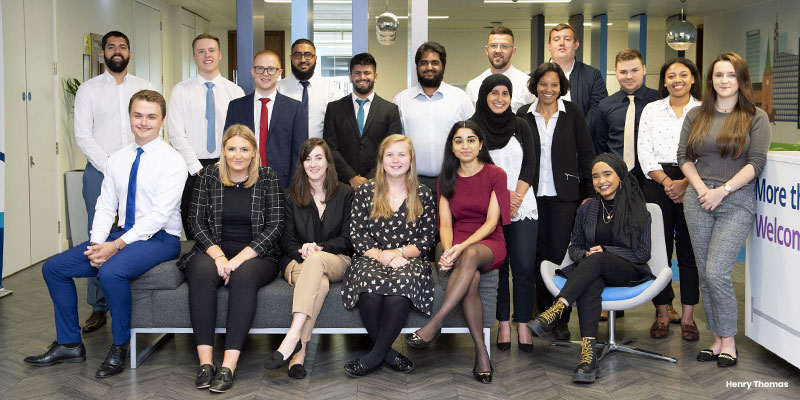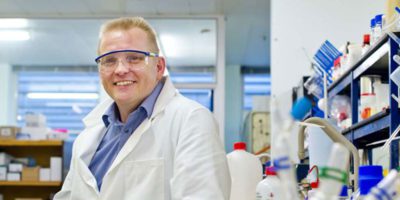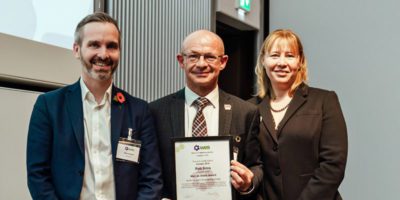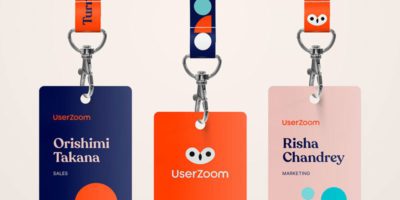Mark Lomas is head of equality, diversity & inclusion at HS2. He has delivered numerous diversity and inclusion projects in the UK and internationally for organisations across a wide variety of sectors including: The Financial Reporting Council, Lloyds Market Association, the BBC, ITV, DR TV Denmark, the University of Sheffield, NHS Clinical Commissioning Group Boards, Highways England, Bermuda Hospital Board, The Bermuda Human Rights Commission and The Law Society. Mark created the multi-award-winning HS2 inclusive procurement model, managing supply chain equality, diversity and inclusion performance.
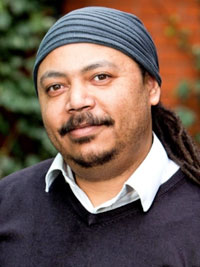
“It’s not the job of women to fix gender inequality issues, the same way it’s not the job of ethnic minorities to fix racism. Everyone is responsible.”
Constant and incessant
I grew up in Bermuda. At 13 I went to the Purcell School for Young Musicians, here in England. All my training and background was in music. At 16 I went to The Juilliard School in New York. I finished my first degree, and I had every intention of coming back to work in the UK.
At the time I didn’t know anything about networks, and I was about to find out the hard way. So, when I came to the UK, so I realised the only way you could even get any type of gig really was through network and it didn’t happen. I got very frustrated with all of that and I decided I’d go back to Bermuda for three weeks to relax, take it easy, and figure out what I was going to do next.
I landed at 6.30 in the evening, and by nine o’clock I had three really good job offers. I thought: “That’s really weird. There’s nothing at all that’s changed about me. Nothing. Yet my value here is one thing and my value in the UK is something else completely.”
When I returned from Bermuda my daughter was just born. I got a job working for a disability charity, just to fill in the time. After a while and all I did was be a pain in the backside to my regional manager: “Why would you do things this way?” “Why would you do that?” After a while, she said: “Thanks for your constant and incessant feedback. Why don’t you go and visit the spend a day with the E&D [equality and diversity] committee?”, as they called it in their charity.
So, I went to the meeting, which was at their headquarters and I sat through about 45 minutes. I’d had no corporate training whatsoever, so I just told the chief executive exactly what I thought. After the meeting, he pulled me aside and said: “Look, what you said had quite a bit of merit, but how you said it left quite a lot to be desired.” We developed what I now understand was a kind of mentoring relationship. I joined the E&D committee, and we used to meet after it for an hour each time.
Eventually the charity’s diversity role came up. I didn’t apply but the HR director called me and said: “Why didn’t you apply? What do you have to lose? Why don’t you come and do the interview anyway?” And then they decided to give me the role, which was quite surprising to me at the time, but they were as good as their word and they let me do things in the way that I wanted to, so that worked well.
I then moved on to The Law Society and then from there I was doing bits of consultancy work before moving to the BBC for about 18 months.
Discovering HS2
I then did a couple of years running my own consultancy company, and that was when I was approached about this new project called HS2. I thought: “Who on earth would want to work in the construction sector on diversity? And railways? This keeps getting worse!”
At that point, I developed an understanding of the scale of the programme and what we would be able to achieve through its procurement. I was lucky enough to get the role and the last five years have just been fascinating, so I couldn’t have been more wrong initially!
My role at HS2 is a mix between looking after the workforce diversity, the supply chain performance, and the inclusive design aspects of our train stations and assets (not the architecture work but the assurance and oversight).
I also assist with community mitigations that arise out of the hybrid Bill process as well, so if we had to knock down a facility utilised by people with specific protected characteristics, for example, part of my job is to make sure that we would build back the facility to a better standard than what was there previously. So, any part of my day has all of those elements.
All out/all in
Interestingly enough, for us, the switch to a completely remote and agile way of working at the start of the first lockdown was pretty instantaneous. We had Microsoft Teams, which probably came into our organisation six or eight weeks before the real impact of COVID landed.
Our IT function did a great job, so moving to working via Teams was absolutely seamless. Because we had a culture of flexible working, it wasn’t such a difficult transition. All out/all in isn’t that difficult, it’s that blended bit in the middle that we’re now finding our way back to.
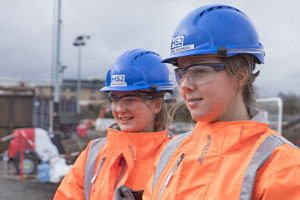
The impact on our construction was fairly significant for the first couple of weeks, but then once all the guidance was clarified, from public bodies and others, our construction sites, were back up and running, with distancing measures and COVID secure practices.
We put an absolute emphasis on wellbeing for our staff, and during the COVID period staff engagement went through the roof, absolutely through the roof. We had a 79% engagement score in our last wellbeing survey, and we had a major staff engagement survey with an 82% response rate. We asked people to describe our just culture in three words, and ‘inclusive’ was the word that they chose more than any other.
Remote working for a lengthy period of time has pushed our managers to be having very regular check-ins with their staff, not around work done, but just: “How are you? What are the arrangements you might need for this week to balance home and work?” That has been very positive.
Now we’re at the period where we’re working through what our hybrid working looks like, and our staff have been clear with us, they would like a blend of home and office working. But critically, when they’re in the office, they want to be in the office for collaborative working.
There’s been a number of impacts from COVID, but I think the organisation has handled it very well by putting an emphasis on well-being and making sure everybody has been included in the remote environment. There are lots of options to engage in video workshops, online webinars on well-being, EDI network and engagement too.
People have engaged at rates that are probably three times as high as it would have been with people in the office. From an engagement point of view, the organisation has built a high degree of trust with the staff.
On the flipside of that, people are missing opportunities to collaborate in person. We’ve been doing a lot of hiring, so there are people hired in the last 12 months who have never met anybody in person. Remote working has its pluses and its minuses, but we’ve made good progress in terms of Agile working and making sure we still have a cohesive workforce.
An inclusive legacy
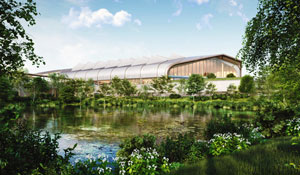
We are designing assets – stations, trains, depots, etc., and that infrastructure will be around for a couple of generations, so the broader the perspective we have feeding into those designs, the better and more inclusive those designs will be.
We will be impacting different communities, up and down the line of route, so making sure that we understand the needs of those communities and listen to them is very, very important.
All aboard
We’re working from London to Birmingham, which is phase one, where we are into the main works of the construction.
One of the things HS2 has, because of the scale, is an innovation accelerator programme, for SMEs looking for better, faster, greener and more efficient ways of doing things. Diversity of perspective, and diversity of thought, are super important in the innovation space.
If you give a small kid a paperclip, they have no idea what it’s for. What would you use it for? They will come up with 15 different ways of using a paperclip that you and I would never consider because we know what it’s supposed to be used for.
As the programme accelerates, with more and more of the workforce are on our sites, we created a new method for embedding diversity in health and safety, by introducing things like language assurance, so people can report health and safety incidents in the six top languages on site, but also do it via audio mechanisms so if they can’t read or write proficiently, particularly in English, that’s no barrier.
There’s lots of things our supply chain does that are driven by our equality, diversity and inclusion, such as our contract requirements and our skills, employment education requirements, which touch groups that are broader than those in the Equality Act.
HS2 Ltd. and our supply chain work with the veterans’ community, and organisations like Buses 4 Homeless, which takes decommissioned buses and converts them into accommodation, as a wellbeing and learning environment so homeless people can re-engage with the community. There’s a wealth of stuff that goes on across the project, which helps us to deliver economic and regeneration benefits.
As we recruit more and more people onto our construction sites, gender balance is going to become more of a challenge, so we’re working downstream with young people to get them interested in our careers as well as launching the HS2 Job brokerage, where you can access all of the jobs across our supply chain in one place.
Being an ally
We are seeing more of an intersectional approach to inclusion, which is partly in response to events over the last 18 months driven by world events and the shift to digital/remote equality, diversity and inclusion engagement events.
Our BAME network rolled out an initiative called Courageous Conversations, where people would get together and share their experiences, not necessarily about being at work but also about what they experience outside in society, which is a very powerful format.
We saw that format picked up by our gender balance network, so we started having intersectional events around courageous conversations and how they impact people. Collaboration between networks and between groups is what is leading us more towards an intersectional approach to things, but very organically.
Michael Kimmel’s got a great TED Talk called Why Gender Equality is Good for Everyone – Men Included. It’s got some really serious points and some really funny points too, so I would definitely recommend listening to that.
Quite simply, it’s just good for everybody, that’s the bottom line. We know on-site that teams that have better gender balance are safer. We know from the McKinsey research that leadership teams with better gender and ethnic balance have better financial performance. It’s just better for everyone when there are more perspectives.
It’s not the job of women to fix gender inequality issues, the same way it’s not the job of ethnic minorities to fix racism. Everyone is responsible.
That’s why allyship is incredibly important, making sure you’re not just speaking to an echo chamber, because if you’re only speaking to women about the challenges women face in the workforce, then change will be slower. Engaging men and others in the organisation mean we can fix these problems together, so allies are key.
Lived experience and being able to share that experience with others in a personal way, in an empathetic way, which helps others understand is very important. On the flip side though, lived experience alone isn’t enough to fix all the issues. There definitely needs to be a balance of lived experience and professional skills to progress EDI within organisations
I’m a real fan of the phrase: “Nothing for us without us.” Please don’t try and design away our problems without including us in the design. As a basic tenet and philosophy it’s very good.
Bermuda is calling
What I’m really looking forward to is seeing the final designs for our stations and our trains over the next year few years. I feel they will be a real move forward for inclusive design.
There’s also how we progress our approach to inclusive health and safety. I think that area of work is going to expand over the next few years. We have the opportunity to define at site level what the industry does regarding EDI going forward, so that’s a really exciting part of the EDI legacy we can leave the sector.
Gender balance challenges will persist for a while as we recruit heavily into site-based roles. The scale and complexity of HS2 means there’s always something new around the corner.

https://www.linkedin.com/in/marklomas1/
https://www.instagram.com/hs2ltd/
[All images for this piece were taken pre-COVID.]

